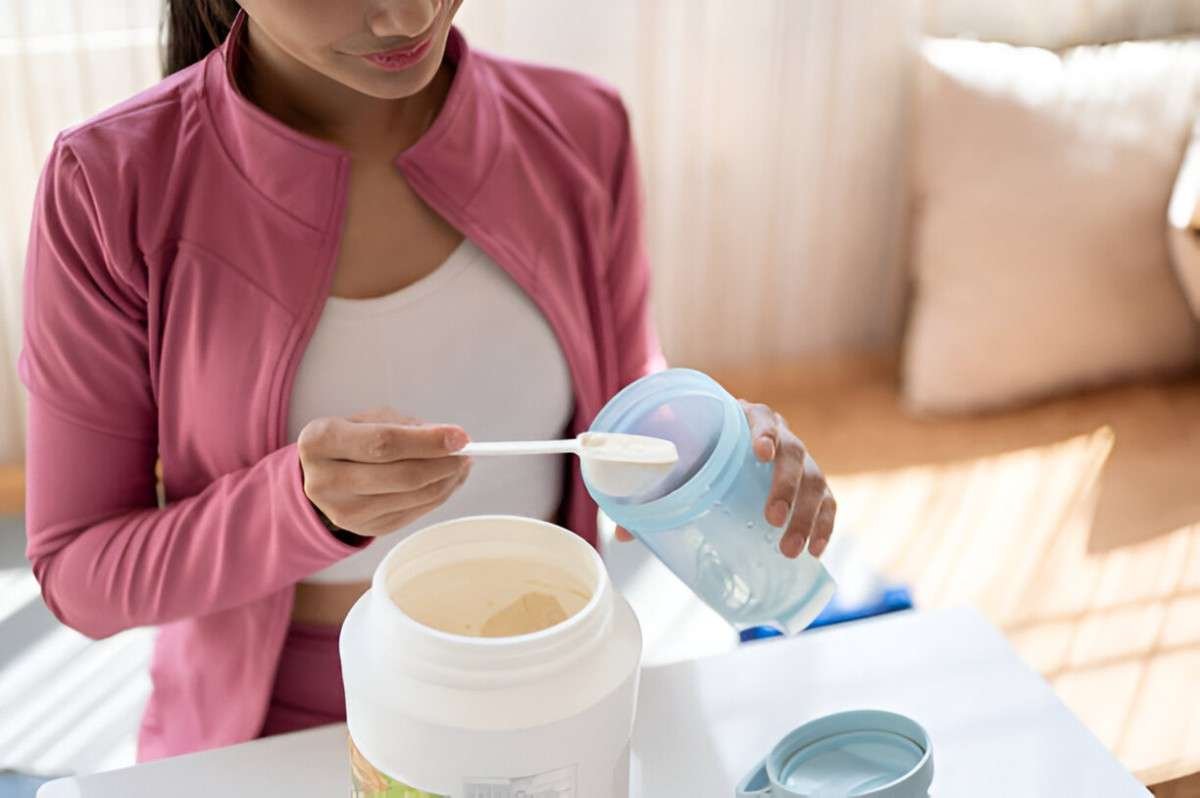Creatine is a naturally occurring compound found in small amounts in certain foods and synthesized by the body, primarily in the liver, kidneys, and pancreas. It plays a crucial role in energy production, particularly during high-intensity exercise. While creatine supplements are often associated with male athletes seeking to increase muscle mass and improve athletic performance, research suggests that women can also benefit from creatine supplementation. In this article, we’ll delve into the nutritional values, key health benefits, potential therapeutic uses, cautions, ways to incorporate creatine into your diet, and other relevant information specifically for women.
Summary Table
| Aspect | Details |
|---|---|
| Nutritional Values | Naturally synthesized by the body from amino acids, found in small amounts in food sources |
| Key Health Benefits | Improved exercise performance, increased muscle mass, enhanced recovery, cognitive benefits |
| Cautions | Hydration, kidney function |
| Incorporating into Diet | Pre-workout, post-workout, daily maintenance |
Nutritional Values
Creatine is not found in significant amounts in food sources, but it is naturally synthesized by the body from amino acids such as glycine, arginine, and methionine. A typical daily intake of creatine from food sources ranges from 1 to 2 grams, primarily from animal products like meat and fish. However, to achieve the performance-enhancing effects associated with creatine supplementation, higher doses (typically 3 to 5 grams per day) are often recommended.
Key Health Benefits
- Improved Exercise Performance: Creatine supplementation has been shown to increase muscle creatine stores, leading to enhanced exercise performance, strength, and power output, particularly during short-duration, high-intensity activities like weightlifting and sprinting. Women who engage in resistance training or high-intensity interval training (HIIT) may experience improved workout performance and better overall fitness with creatine supplementation.
- Increased Muscle Mass: While women typically have lower muscle mass than men, creatine supplementation may still promote muscle growth and hypertrophy in female athletes and fitness enthusiasts. By increasing muscle creatine levels, creatine supplementation can support muscle protein synthesis and adaptation to resistance training, leading to gains in lean muscle mass and strength.
- Enhanced Recovery: Creatine has been shown to reduce muscle damage and inflammation following intense exercise, leading to faster recovery and less muscle soreness. Women who engage in regular exercise, particularly intense or high-volume training, may benefit from creatine supplementation to support post-workout recovery and improve training consistency.
- Cognitive Benefits: Emerging research suggests that creatine supplementation may have cognitive benefits beyond its effects on physical performance. Studies have shown that creatine may enhance cognitive function, memory, and brain health, making it a potential supplement for women looking to support mental acuity and cognitive performance.
Potential Therapeutic Uses
While creatine is primarily known for its performance-enhancing effects, it has also been studied for its potential therapeutic uses in various health conditions, including:
- Neuromuscular Disorders: Creatine supplementation may benefit individuals with neuromuscular disorders characterized by muscle weakness and fatigue, such as muscular dystrophy and multiple sclerosis. By improving muscle function and energy metabolism, creatine may help alleviate symptoms and improve quality of life in these populations.
- Age-Related Muscle Loss: Sarcopenia, or age-related muscle loss, is a common issue among older adults, particularly women. Creatine supplementation may help slow the progression of sarcopenia and preserve muscle mass and function with aging, promoting independence and mobility in later life.
Cautions
While creatine supplementation is generally safe for most women when taken as directed, there are some cautions to consider:
- Hydration: Creatine supplementation may lead to increased water retention in some individuals, so it’s essential to stay well-hydrated when taking creatine to prevent dehydration and potential side effects like cramping or gastrointestinal discomfort.
- Kidney Function: Some research suggests that high-dose creatine supplementation may have adverse effects on kidney function in individuals with pre-existing kidney conditions. Women with kidney disease or impaired kidney function should consult with a healthcare professional before using creatine supplements.
Incorporating Creatine into Your Diet
Creatine supplements are typically available in powdered form and can be easily incorporated into your daily routine:
- Pre-Workout: Mix creatine powder with water or a beverage of your choice and consume it before your workout for enhanced performance and muscle gains.
- Post-Workout: Adding creatine to your post-workout protein shake or meal can support muscle recovery and replenish creatine stores after exercise.
- Daily Maintenance: To maintain optimal creatine levels, consider taking a smaller dose of creatine (e.g., 3 to 5 grams per day) with meals or throughout the day.
Creatine supplementation offers numerous benefits for women seeking to improve exercise performance, increase muscle mass, and support overall health and well-being. By incorporating creatine into their fitness regimen, women can experience enhanced workout performance, faster recovery, and better results from their training efforts.





